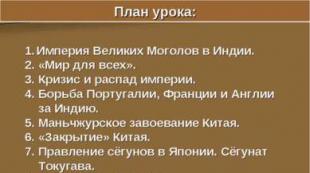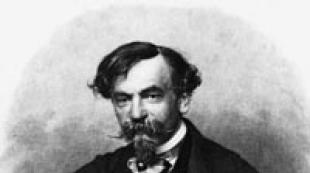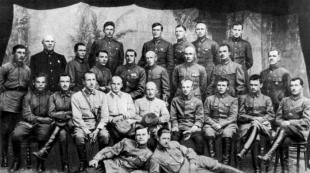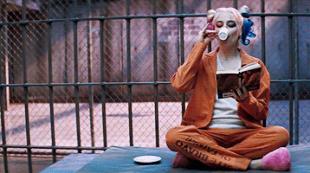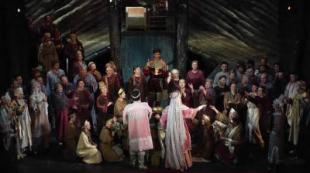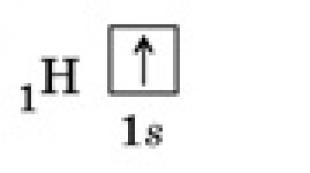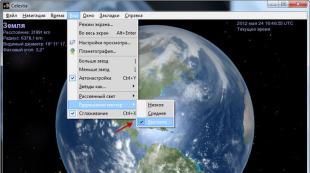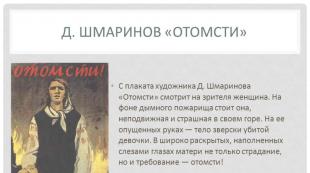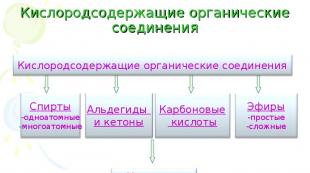Political System of Great Britain – Политическая система Великобритании. Топик по английскому языку "Political System of Great Britain - Политическая система Великобритании" Система правления в великобритании на английском
The United Kingdom is a state with a constitutional monarchy and it is governed within a parliamentary democracy. The head of the state is the monarch who is a hereditary member of the Royal Family, and the head of the government is the prime-minister. In practice, the monarch takes little part in the government’s work, he or she just gets weekly oral reports from the prime-minister. The UK has a devolved system of government. The executive power is exercised by the British government, as well as the devolved governments of the Scottish Parliament, Welsh Assembly and Northern Ireland Assembly. The most important departments in the government are the Treasury, the Home Office, the Foreign and Commonwealth Office. The treasury is responsible for raising of all taxes and the general management of the economy. The Home Office is responsible for criminal matters, policing, and immigration. The Foreign and Commonwealth Office is responsible for all international relationships.
The legislative body for the UK and British overseas territories is introduced by the Parliament of the UK, as well as the Scottish Parliament, Welsh and Northern Ireland Assemblies. The UK Parliament consists of two legislative parliamentary bodies, the House of Lords (the upper chamber) and the House of Commons (the lower chamber). All legislation has to be approved by both Houses of Parliament. The House of Commons consists of democratically elected Members of Parliament from different political parties, while most members of the House of Lords are hereditary peers. General elections are held every five years.
The British parliamentary system is a multi-party system . Each of the United Kingdom parliaments or assemblies has elected political parties. The major parties in England are the Labour, the Conservative and the Liberal Democratic parties. Meanwhile the dominant party in Scotland is the Scottish National Party.
The United Kingdom has no written constitution. It is not codified and is made up of constitutional conventions and acts of Parliament.
Соединенное Королевство является государством с конституционной монархией и управляется в рамках парламентской демократии. Главой государства считается монарх, являющийся унаследованным членом Королевской семьи, а главой правительства является премьер-министр. На практике же монарх мало участвует в работе правительства, он или она лишь получает еженедельные устные отчеты от премьер-министра.
Соединенное Королевство имеет автономную систему правления. Исполнительная власть действует при помощи британского правительства, а также автономных правительств шотландского Парламента, Ассамблеи Уэльса и Ассамблеи Северной Ирландии. Наиболее значимыми министерствами в правительстве являются Министерство финансов, МВД и МИД. Министерство финансов отвечает за сборы всех налогов и общее управление экономикой. МВД занимается криминальными вопросами, охраной порядка и иммиграцией. МИД отвечает за все международные отношения.
Законодательная власть Соединенного Королевства и британских заморских территорий представлена Парламентом Великобритании, а также Шотландским Парламентом, Ассамблеями Уэльса и Северной Ирландии. Парламент Великобритании состоит из двух законодательных парламентских органов, Палаты Лордов (верхней палаты) и Палаты Общин (нижней палаты). Все законопроекты должны быть одобрены обеими палатами Парламента. Палата Общин состоит из демократически избранных членов Парламента из различных политических партий, в то время как в Палате Лордов находятся наследные пэры. Общие выборы проводятся каждые пять лет.
Судебная власть Великобритании независима от законодательной и исполнительной властей. Высшим судом считается Верховный Суд Соединенного Королевства.
Британская парламентская система многопартийна. Каждый из парламентов и ассамблей Соединенного Королевства избрал политические партии. Основными партиями Англии являются Лейбористская, Консервативная и Либерально-Демократическая партии. Тем временем, доминирующей партией в Шотландии является Шотландская Национальная партия.
Фото английской королевы Елизаветы II сделано в Лондоне, 24 октября 2014 года при посещении Музея Естествознания.
(LONDON, ENGLAND — October 24, 2014. Photo by Chris Jackson)
ЗАПОМНИТЕ
- The UK is a constitutional monarchy and a parliamentary democracy.
- The monarch is the head of the state (Queen Elizabeth the Second)
She doesn’t rule the country, has ceremonial function; signs bills.
- The prime-minister is the head of the government.
He is the leader of the party with the majority seats in the House of Commons.
- Parliament consists of two chambers or houses:
the House of Lords
the House of CommonsThe House of Lords consists of 651 MPs (elected). It makes laws.
The House of Commons consists of 1203 non-elected peers. It can delay bills and ask for rewriting certain parts.
- The head of the both Houses of Parliament is the Queen. She is also the head of the executive branch.
Mind the articles:
- the Houses of Parliament
- the House of Lords
- the House of Commons
- the government
- But__ Parliament
* * *
Information to know about the Political System of the UK
- The legislative power belongs to Parliament. It makes laws.
- The House of Commons is more powerful: it decides national policy.
- The House of Lords has little political importance.
- The executive power belongs to the Government. It executes laws (puts them into effect.)
- Real power in the UK belongs to Parliament and the Government.
- The term “constitutional monarchy” means that GB is governed by Parliament, and the monarch is Head of State.
- The Queen has very little power. She has to put her signature on new laws even if she doesn’t like them.
- Her most important function is ceremonial. The Queen is a symbol of Britain’s long history and tradition. On great occasions she is driven through the streets in a golden carriage, guarded by soldiers.
- She represents Britain when she meets other heads of state. Every autumn she opens the Parliament. Every year she speaks on TV on Christmas day. She opens new hospitals, theatres and museums. After disasters she send messages to the families of the victims.
- The Queen of GB is also the Head of Commonwealth and also the Queen of Canada, Australia, New Zealand, etc. The Commonwealth is an association of former members of British Empire (British colonies) and Britain, which was formed in 1949.
Questions:
- What functions has Parliament ?
- What function has the Government?
- What does the Queen do?
- What does the term constitutional monarchy means?
- Why does the House of Lords have little political importance?
- What do the letters MP stand for?
- Is the Queen of the UK also the queen of some other countries?
- Do you think the idea of monarchy is out-of date?
The British constitution is often called the unwritten constitution because, unlike the constitutions of most other countries it is not a single documents, but a set of laws.
The first British constitution was Magna Carta which the King John was forced to accept in 1215. Its fundamental principles formed the base of the present one.
Some information about Royal family.
1. The family name of the present royal family is Windsor.*
2. Queen Elizabeth II became Queen in 1952.
3. Her husband’s name is Prince Philip.
4. She has 4 children (Prince Charles, Princess Anne, Prince Andrew, Prince Edward)
5. Her favourite animals are dogs.
6. The British monarchs are crowned in Westminster Abbey.
7. There are 600 rooms in Buckingham Palace.
8. Queen Victoria reigned for the longest period.* This may sound very British, but the royal family ancestors were German. The present Queen’s great-great-grand mother, Queen Victoria (1819-1910) was born in Britain, but her mother and her husband were both German.
Extra information about the Political System of the UK
- Members of the House of Commons are elected by the voters of 650 constituencies (избирательные округа): each constituency has an elected MP.
- The party, supported by the majority in the House of Commons, forms the government.
- The second large party forms the Opposition (the Shadow cabinet).
- The two main parties are the conservative party (the Tory party) and the labour party (консерваторы и лейбористы).
- Since the eighteenth century, the two parties have sat facing each other in the House of Commons.
- There are some other parties: the Liberal Party, the Party of Liberal Democrats, the Social Democratic Party, the Scottish National Party, the Welsh Nationalist Party, the Communist Party of Britain, the Communist Party of Great Britain.
- The present Prime-Minister is Theresa May (the leader of Conservative Party).

- The Prime-Minister lives at 10, Downing Street.
Check Yourself what you remember on the political system of the UK
- The letters ‘MP’ means the ______________________.
- Parliament is ___________two chambers:______________________.
- The members of the __________________are not elected.
- The UK is divided into constituencies (избирательные округа) that have their representatives in the ___________________.
- In the UK ___________________is held every four or five years.
- The party which wins the Majority of seats in the General Election forms the ____________.
- The leader of the winning party becomes the________________________
- The members of the party of Parliament that didn’t win the election form the_____________ to the Government.
Political System of the Great Britain
The United Kingdom of Great Britain and Northern Ireland is a constitutional monarchy. Britain does not have a written constitution. Parliament is the most important authority in Britain.
The monarch serves formally as head of state. The present sovereign is Queen Elizabeth II (the second).
The House of Commons consists of Members of Parliament. General elections are held every five years. All citizens aged 18 have the right to vote.
The party which wins the most seats in Parliament forms the Government; its leader becomes the Prime Minister.
The functions of the House of Commons are legislation and scrutiny of government activities. The House of Commons is presided over by the Speaker.
The House of Lords is presided by the Lord Chancellor. The House of Lords has no real power.
It"s in the House of Commons that new bills are introduced and debated.
Об"єднане Королівство Великобританії і Північної Ірландії є конституційною монархією. Британія не має написаної конституції. Парламент – найважливіший орган у Британії.
Монарх формально є главою держави. Теперішній монарх – Єлизавета II (друга).
Палата Общин складається з членів Парламенту. Загальні вибори проходять кожні 5 років. Усі громадяни, що досягли 18 років мають виборче право.
У Британії існує мало політичних партій. Головні – це консервативна партія і лейбористська партія.
Кожна політична партія висуває одного кандидата від кожного виборчого округу. Той, хто набере більшість голосів, стає обраним членом Парламенту від того округу.
Партія, яка одержує більшість в Парламенті, формує уряд; її лідер стає прем"єр-міністром.
Функції Палати Общин – законотворення і уважний огляд діяльності уряду. Палата Общин очолюється Спікером.
Голова Палати Лордів – Лорд Канцлер. У палати Лордів немає фактичної влади.
Саме в Палаті Общин представляються і розглядаються нові законопроекти.
Парламент відповідальний за британську національну політику. Місцеві уряди відповідають за організацію таких послуг, як освіта, поліція і багато інших.
Political System of Great Britain
The United Kingdom of Great Britain and Northern Ireland is a constitutional monarchy. It means that the sovereign reigns but does not rule.
Britain does not have a written constitution, but a set of laws.
Parliament is the most important authority in Britain. Technically Parliament is made up of three parts: the Monarch, the House of Lords; and the House of Commons. In reality the House of Commons is the only one of the three which has true power.
The monarch serves formally as head of state. But the monarch is expected to be politically neutral and should not make political decisions.
The present sovereign is Queen Elizabeth II. She was crowned in Westminster Abbey in 1953.
The House of Commons consists of Members of Parliament. There are 650 of them in the House of Commons. They are elected by secret ballot. General elections are held every five years. The country is divided into 650 constituencies. All citizens, aged 18 and registered in a constituency, have the right to vote. But voting is not compulsory in Britain. Only persons convicted of corrupt and certain mentally ill patients don"t take part in voting.
Each political party puts up one candidate for each constituency. The one who wins the most votes is elected MP for that area.
The party which wins the most seats in Parliament forms the Government. Its leader becomes the Prime Minister. His first job is to choose his Cabinet consisting of the most important ministers in the Government. The Prime Minister usually takes policy decisions with the agreement of the Cabinet.
The functions of the House of Com¬mons are legislation and scrutiny of government activities.
The House of Commons is presided over by the Speaker. The Speaker is appointed by the Government.
The House of Lords comprises about 1,200 peers. It is presided by the Lord Chancellor. The House of Lords has no real power. It acts rather as an advisory council.
It"s in the House of Commons that new bills are introduced and debated. If the majority of the members are in favour of a bill, it goes to the House of Lords to be debated. The House of Lords has the right to reject a new bill twice.
But after two rejections they are obliged to accept it. And finally a bill goes to the monarch to be signed. Only then it becomes law.
Parliament is responsible for British national policy. Local governments are responsible for organizing such services as education, police and many others.
Державний устрій Великобританії
Сполучене Королівство Великобританії і Північної Ірландії – конституційна монархія. Це означає, що монарх є главою держави, але не управляє нею.
Британія не має записаної конституції, але має набір законів.
Парламент має найбільші повноваження в Британії. Технічно Парламент складається з трьох частин: Монарх, Палата Лордів; і Палата Общин. Фактично Палата Общин – єдина з трьох державних органів, яка має справжню владу.
Монарх служить формально главою держави. Але очікується, що монарх політично нейтральний і не повинен приймати політичні рішення.
Теперішній монарх – королева Єлизавета II. Вона була коронована у Вестмінстерському абатстві в 1953 р.
Палата Общин складається з парламентарів. їх 650. Вони обрані таємним голосуванням. Загальні вибори проходять кожні п"ять років. Країна поділяється на 650 виборчих округів. Усі громадяни, що за віком досягли 18 років і реєструються у виборчому окрузі, мають виборче право. Але голосування в Британії не обов"язкове. Тільки люди, визнані винними в злочинах і душевно хворі пацієнти не беруть участі в голосуванні.
Завдяки британській виборчій системі існує мало політичних партій в Британії. Головними є: консервативна партія, лейбористська партія і ліберал/соціал-демократичний альянс.
Кожна політична партія висуває одного кандидата для кожного виборчого округу. Той, хто набере більшість голосів – вибраний член парламенту для цієї області.
Партія, яка виграє більшість місць в парламенті, формує уряд. Його лідер стає прем"єр-міністром. Його перша робота – набрати Кабінет, що складається з найголовніших міністрів в уряді. Прем"єр-міністр зазвичай приймає політичні рішення зі згоди Кабінету.
Функції Палати Общин – законотворення і уважний огляд діяльності уряду.
Над Палатою Общин головує спікер. Спікера призначає уряд.
Палата Лордів охоплює близько 1200 перів. Над ними головує Лорд-канцлер. Палата Лордів не має ніякої реальної влади. Вона служить швидше консультативною радою.
Саме в Палаті Громад представляються і обговорюються нові законопроекти. Якщо більшість членів за прийняття законопроекту, він йде до Палати Лордів, щоб бути там обговореним. Палата Лордів має право двічі відхилити новий законопроект.
Але після двох відхилень вони зобов"язані прийняти його. І остаточно законопроект йде до монарха, який він підписує. Тільки потім законопроект стає законом.
Парламент відповідальний за британську національну політику. Місцеві управління відповідальні за організацію таких послуг як освіта, поліція і багато інших.
Волкова О.Ю., Погожих Г.М. Усі розмовні теми. English. - Х.: Торсінг плюс, 2013. - 608 с.
The state system of Great Britain - Государственный устрой Великобритании
Great Britain is a parliamentary monarchy (1)
. The power of the Queen is limited by the Parliament. It means that the sovereign reigns (2)
but does not rule. Britain does not have a written constitution, but a set of laws (3)
. Parliament is the most important authority in. Britain. It comprises (4)
the House of Commons, the House of Lords and the Monarch in her constitutional role. In reality the House of Commons is the only one of the three, which has true power.
The Monarch serves formally (5)
as head of state. But the Monarch is expected to be politically neutral (6)
and should not make political decisions. The present sovereign of Great Britain is Queen Elizabeth II (the second). She was crowned (7)
in Westminster Abbey in 1953.
The House of Commons has 650 elected Members of Parliament (MPs), each representing a local constituency (8)
.
They are elected by secret ballot. General elections are held every five years. The country is divided into 650 constituencies. All citizens aged 18 have the right to vote (9)
, but voting is not compulsory in Britain. The candidate polling the largest number (10)
of votes in a constituency is elected. The functions of the House of Commons are legislation and scrutiny (11)
of government activities. The House of Commons is presided over by the Speaker. The Government appoints the Speaker.
The House of Lords comprises about 1,200 peers (12)
. It is presided over by the Lord Chancellor. The House of Lords is made up of hereditary (13)
and life peers and peeresses and the two archbishops (14)
and 24 most senior bishops of the established Church of England. The House of Lords has no real power. It acts rather as an advisory council (15)
.
There are few political parties in Great Britain thanks to the British electoral system. They are the Conservative Party, the Labour Party and the Liberal Democratic Alliance (16)
. Each political party puts up one candidate for each constituency. The one who wins the most votes is elected MP for that area. The party which wins the most seats in Parliament forms the Government. Its leader becomes the Prime Minister. As head of the Government the Prime Minister appoints ministers, of whom about 20 are in the Cabinet - the senior group which takes major policy decisions (17)
. Ministers are collectively responsible (18)
for government decisions and individually responsible for their own departments.
The second largest party forms the official Opposition, with its own leader and "shadow cabinet" (19)
. The Opposition has a duty to criticise government policies and to present an alternative programme (20)
.
The new bills are introduced and debated in the House of Commons. If the majority of the members are in favour of a bill it goes to the House of Lords to be debated. The House of Lords has the right to reject a new bill twice. But after two rejections they are obliged to accept it. And finally the bill goes to the Monarch to be signed. Only then it becomes a law.
Parliament is responsible for British national policy. Much legislation applies through out Britain. England and Wales, Scotland and Northern Ireland have their own legal systems with differences in law and practice.
Великобритания - парламентская монархия. Власть королевы ограничивается парламентом, что означает, что монарх царит, и не руководит. Британия не имеет собственной конституции, а лишь свод законов. Парламенту предоставлена самая большая власть. В его состав входят: Палата общин, Палата лордов и монарх, в своей конституционной роли. На самом деле весомую силу имеет лишь Палата общин.
Монарх выполняет функцию главы государства формально. Он должен занимать нейтральную политическую позицию и не принимать политических решений. Сегодняшним монархом является Королева Елизавета, что была коронована в Вестминстерском Аббатстве в 1953 году.
В состав Палаты общин входит 650 членов парламента, представляющих местные избирательные округа.
Они избираются тайным голосованием. Всеобщие выборы проводятся каждые 5 лет в 650-ти избирательных округах, на которые поделена вся страна. Все граждане в возрасте от 18-ти лет имеют право голосовать, хотя это и не обязательно. Избранным считается тот кандидат, набравший наибольшее количество голосов. Функцией Палаты общин является законодательство и внимательное изучение правительственных дел. Палату общин возглавляет председатель, назначаемый правительством.
Палата лордов состоит из 1200 пэров. Председательствует здесь лорд-канцлер. Сюда входят наследственные и еще живые пери, два архиепископы и 24 старейших за саном епископы, которые избираются на Английском церковью. На самом деле Палата лордов не владеет полной силой влияния на политику. Она работает в большей мере как консультационный совет.
Благодаря британской выборной системе в Великобритании есть такие политические партии: Консервативная, Лейбористская партии и Либерально-демократический союз. Каждая политическая партия предлагает своего кандидата в каждом избирательном округе. Тот, кто наберет больше всего голосов, станет членом парламента от этого округа. Партия, которая набирает больше мест в парламенте, формирует правительство. Ее лидер становится премьер-министром. Как председатель правительства премьер-министр назначает министров, 20 из которых входят в Кабинет министров, который принимает важнейшие политические решения. Министры является коллективно ответственными за решение правительства и индивидуально ответственными за работу в своих министерствах.
Вторая крупнейшая партия формирует оппозицию с собственным лидером и "теневым кабинетом". Ее обязанностью является критика правительственной политики и внесение альтернативной программы.
Новые законы представляются на рассмотрение в Палату общин и обсуждаются здесь. Если большинство членов пришли к единому мнению относительно данного закона, то он передается в палату лордов для дальнейшего обсуждения. Палата лордов имеет право отменить новый закон дважды и уже после второго отклонения обязана принять его. Наконец закон попадает в руки монарха на подпись. Только теперь можно считать его законом в полной мере.
Парламент отвечает за британское национальное Законодательство, которое распространяется на территорию всей Британии. Правда, Англия и Валия, Шотландия и Северная Ирландия имеют собственные законодательные системы с разногласиями в законах и в их практическом применении.
Vocabulary
1. monarchy ["mɔnəkɪ] - монархия
2. sovereign reigns - монарх царит
3. set of laws - свод законов
4. comprise - содержать в себе
5. serves formally -В формально выступает
6. neutral ["njuːtr(ə)l] - нейтральный
7. to be crowned - быть коронованным
8. a local constituency - местный избирательный округ
9. vote - голосовать
10. polling the largest number - тот, который получил наибольшее количество голосов
11. scrutiny - внимательное изучение
12. peer - пэр (почетный титул в Великобритании)
13. hereditary - потомственный
14. archbishop - архиепископ
15. it acts rather as an advisory council - действует более как консультативный совет
16. alliance - союз
17. to take decisions - принимать решения
18. to be (responsible for) - быть ответственным (по)
19. "shadow cabinet - "теневой кабинет"
20. to present an alternative programme - вносить альтернативную программу
Questions
1. What is the most important authority in Great Britain?
2. Is the Monarch expected to be politically active?
3. How are the Members of Parliament elected?
4. What are the main political parties in Great Britain?
5. What are the functions of the House of Commons?
The United Kingdom of Great Britain and Northern Ireland is a constitutional monarchy. Britain does not have a written constitution. Parliament is the most important authority in Britain.
The monarch serves formally as head of state. The present sovereign is Queen Elizabeth II (the second).
The House of Commons consists of Members of Parliament. General elections are held every five years. Ail citizens aged 18 have the right to vote.
There are few political parties in Britain. The main ones are: the Conservative Party, the Labour Party.
Each political party puts up one candidate for each constituency. The one who wins the most votes is MP for that area.
The party which wins the most seats in Parliament forms the Government; its leader becomes the Prime Minister.
The functions of the House of Commons are legislation and scrutiny of government activities. The House of Commons is presided over by the Speaker.
The House of Lords is presided by the Lord Chancellor. The House of Lords has no real power. It"s in the House of Commons that new bills are introduced and debated.
Parliament is responsible for British national policy. Local governments are responsible for organizing of education, police and many others.
[ превод ]
Политическая система Великобритании
Объединенное Королевство Великобритании и Северной Ирландии является конституционной монархией. В Британии нет написанной конституции. Парламент — главный государственный орган Британии.
Монарх формально является главой государства. В настоящее время правит королева Елизавета II.
Палата общин состоит из членов Парламента. Всеобщие выборы проходят каждые 5 лет. Все граждане, достигшее возраста 18 лет, имеют избирательные права.
В Британии существует мало политических партий. Основные это — консервативная партия и лейбористская партия.
Каждая политическая партия выдвигает одного кандидата от каждого избирательного округа. Тот, кто наберет большинство голосов, становится членом Парламента от этого округа.
Партия, которая получает большинство в Парламенте, формирует правительство; ее лидер становится премьер-министром.
Функции Палаты Общин — законотворчество и проверка деятельности правительства. Палату Общин возглавляет Спикер.
Председатель Палаты Лордов — Лорд-канцлер. У палаты Лордов нет фактической власти. Именно в Палате Общин представляются и обсуждаются новые законопроекты.
Парламент отвечает за британскую национальную политику. Муниципальные правительства отвечают за организацию образования, полиции и других.
Поделиться ссылкой на эту страницу в любимой соцсети: Отправить ссылку на эту страницу друзьям | Просмотров 22083 |